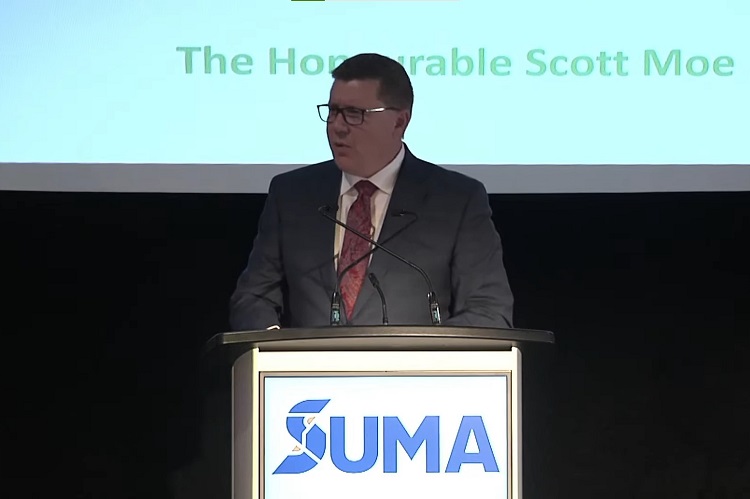As Saskatchewan emerges from the COVID-19 pandemic, many communities represented at the Saskatchewan Urban Municipalities Association (SUMA) convention are expressing concern about mental health and addiction across the province.

“It’s as important as having roads in Saskatchewan. So unfortunately we need the money and we need it now. We need it implemented. We have to start saving some lives here,” said Yorkton Mayor Mitch Hippsley.
The latest provincial budget includes $470 million directed towards mental health and addiction with $403 million of that directed to mental health and $67 million designated to addictions.
With that funding the government hopes to create 150 treatment spaces across Saskatchewan in the coming years, as smaller communities say resources in just Saskatoon and Regina aren’t enough.
“Realistically if you go to our hospital in Humboldt if you have mental health issues, they aren’t capable of treating you. They’re not trained to treat you so they will patch you up and send you home and tell you to call the mental health helpline,” said Humboldt Mayor Michael Behiel.
“On average there is a nine- to 18-month wait for those services and they’re not available in our community.”
“We need the services, we need those doctors, we need the treatment programs but also we need those proactive activities that can stop some of that before it gets to the crisis and before that treatment is needed,” said SUMA Interim President Randy Goulden.

The issue of mental health and addiction has only been amplified by a pandemic that forced people away from their social routines and into isolation.
“It has amplified it to a crisis proportion now. We are hearing more and more from our members that people are really suffering and they may be suffering alone. They may be suffering by not making that phone call to get help until it’s too late,” warned Goulden.
“The isolation and the inability for the kids to participate as they used to. The issues with the seniors being isolated as well and not being able to have that connection and being for lack of a better terms shut-ins in their own homes,” said Behiel.
“People are having trouble going to work. I mean, real people that we see, our neighbours and so on that we would think are just doing fine, they’re not. They’re struggling, they’re coping, they’re masking it very well going to work and they have nowhere to go to find help”, said Hippsley, who is also the Chair of the newly formed City Mayors Caucus Mental Health and Addictions Working Group.
“We have to remember that we are social animals and we need people and then we were told — for obvious reasons — just to stay home, stay safe and so on. That put everyone into like a psychological jail and some people can cope better than others as you know,” added Hippsley.
Humboldt Mayor Michael Behiel recently lost his best friend to mental health struggles and has hosted homeless people in his own home because they had nowhere else to go.
“I did have one lady in my office who broke down and cried and told me we’ve been dealing with this for three years and we don’t know where to go. What do we do?”

Behiel is also one of the 16 mayors that comprise the City Mayors Caucus that hopes to spark change.
“We’ve managed to get the province and now the federal government to come to the table with us and sit down and agree to listen to us and try to figure out these solutions,” said Behiel.
“We’re the people in the middle now and collectively we can actually talk directly to the ministers and it’s not hearsay anymore. They’re hearing it from the horse’s mouth,” said Hippsley.




Comments